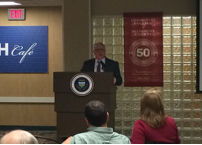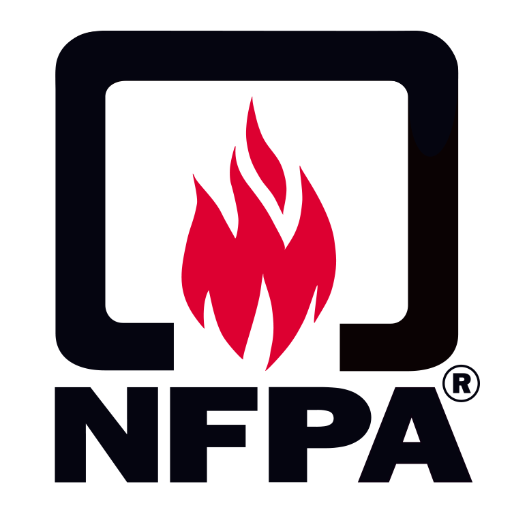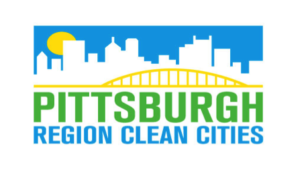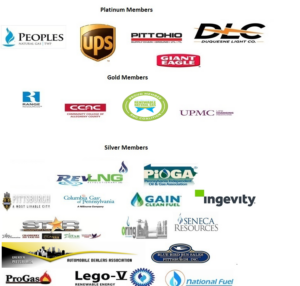
by Jeff Twardy | Nov 24, 2016 | Articles
Vast construction projects at Pittsburgh’s Carnegie Mellon University will soon engulf a site that became a landmark in the development of electric vehicles in western Pennsylvania. It was a pioneering facility and the largest charging site in the region for many years. The Electric Garage’s chargers are being relocated immediately with demolition of the site to begin in July. Vast construction projects at Pittsburgh’s Carnegie Mellon University will soon engulf a site that became a landmark in the development of electric vehicles in western Pennsylvania. It was a pioneering facility and the largest charging site in the region for many years. The Electric Garage’s chargers are being relocated immediately with demolition of the site to begin in July At its peak, the Electric Garage boasted eight J1772 Level 2 chargers offering 203V at 30 amps. In 2014, a Tesla HPWC with 40 amp charging was added. Charging and parking was free to the public for up to four hours a session– a welcome oasis in the otherwise congested and paid parking of Oakland. It was easily the largest charging site in western Pennsylvania for most of its life and was open 24 hours/7 days a week on a first-come, first-serve basis. Non-charging parking spots on the site were marked as permit only. The original six Eaton chargers were installed in 2012, using funding provided from the Pennsylvania Department of Environmental Protection’s Office of Energy and Technology Deployment which had a special mandate from the Office of Acronym Abatement at the Bureau of Ridiculously Long and Expansive Government Agency Naming Commission Department. Originally built as an Exxon gas station, the Electric Garage...

by Jeff Twardy | Nov 24, 2016 | Articles
Earlier this month, the U.S. Environmental Protection Agency (EPA) announced the allocation of approximately $7 million in rebate funds available to public and private schools that replace or retrofit older diesel-powered school buses with clean-burning alternative fuel systems. This news comes at a time when school districts around the country are beginning to take action against the harmful effects that older diesel model school buses can have on the health of students, drivers and faculty members. With this incentive, the EPA hopes to give school districts that are considering a conversion to clean-burning alternative fuel systems, including propane autogas and compressed natural gas, the final push needed to begin replacing student transport vehicles. Leander I.S.D. in Texas is just one example of a public school district that has already taken advantage of a government issued rebate for the 2016-2017 school year. The district, which recently launched 24 new buses powered by ROUSH CleanTech’s propane autogas fuel systems, is now operating a total of 64 clean-burning, cost-effective alternative fuel models. “We anticipate these new buses will lead LISD to a brighter future by helping to decrease our carbon footprint and reduce student exposure to harmful emissions,” said Steve Stripling, director of transportation for the district. “Our older diesel buses didn’t run as clean, and it was time to replace them with more environmentally friendly...

by Jeff Twardy | Nov 24, 2016 | Articles
On October 14, 2016 the Pittsburgh Region Clean Cities held its’ 7th Annual Odyssey Day Event at the Community College of Allegheny County – West Hills Center. The event drew almost 200 attendees who were able to see some of the new technologies and listen to presenters talk about their experiences with alternative fuels and technologies. The events morning speaker was Allegheny County’s Executive Rich Fitzgerald who welcomed everyone and stated that since the first time7 years ago how far the event has moved with the many different vehicles on display and how Western Pennsylvania is the center of many of these technologies. The event included many new speakers including the lunchtime speaker PA Department of Transportation’s Policy Director Roger Cohen who talked about all the things that their office is looking at in the fuels and technology arena. The highlight of the event was the self parking of the Tesla in the parking lot at...

by Jeff Twardy | Nov 8, 2016 | Articles
TRAIN THE TRAINER NFPA’s Alternative Fuel Vehicle Safety Training Course Hosted by Pittsburgh Region Clean Cities Community College of Allegheny County – West Hills Center 1000 McKee Road Oakdale, PA 15071 January 12, 2017 – 8:00am-5:00pm FREE for Fire Service Personnel Please join us for the NFPA “Train the Trainer” Alternative Fuel Vehicles Safety Training Program. This course was created to provide guidance on how to safely deal with emergency situations involving alternative fuel passenger vehicles, trucks, buses, and commercial fleet vehicles. The recently revised training now covers electric, hybrid, fuel cell, and gaseous fuel vehicles, including CNG, LNG, and LPG. The program is FREE for a total of 125 members. Space is limited and based upon the discretion of your department’s point of contact. Attendees will be responsible for their own meals. In 2015, NFPA received grant funding through the Department of Energy to expand its comprehensive Alternative Fuel Vehicles Safety Training Program, including its fire service Train-the-Trainer program. This instructor led course is comprised of videos, animations, slides, and activities covering the following topics: Introduction to hybrid, electric, fuel cell, & gaseous fuel vehicles Basic electrical concepts Vehicle systems & charging/refueling infrastructure Initial response procedures Identification methods, Immobilization, disabling, Emergency operations • Unanticipated vehicle movement, electric shock hazards • Toxic and flammable gas build-up. Electrolyte skin contact • Extrication, Vehicle and Battery fires, Submersion • High voltage battery damage, Battery re-ignition • Incidents involving charging stations & refueling stations Field Evolutions — including actual AFVs NFPA® is a registered trademarks of the National Fire Protection Association®, 1 Batterymarch Park, Quincy, MA. For purposes and limitations of NFPA...
by Jeff Twardy | Oct 11, 2016 | Articles
Click here to see a full schedule for Odyssey Day 2016! Pittsburgh Region Clean Cities 412-735-4114 Home ODYSSEY DAY BACKGROUNDER Contact: Richard Price Coalition Coordinator 412-735-4114 coordinator@pgh-cleancities.org ODYSSEY DAY OVERVIEW Odyssey Day is an outreach and education event dedicated to promoting the use of alternative fuel and advanced technology vehicles. It is coordinated by the National Alternative Fuels Training Consortium (NAFTC) headquartered at West Virginia University in Morgantown, West Virginia, in partnership with the U.S. Department of Energy (DOE). The first event was held in 2002. The Pittsburgh Region Clean Cities holds this event each year in October at the Community College of Allegheny County West Hills Center in Oakdale, PA Event Date: October 14, 2016 Time: 9:00am to 2:30pm This years’ event will feature alternative fueled vehicles including a CNG and Propane School buses, an all electric Tesla and CNG dedicated and Dual Fuel Class 8 Tractors. Guest Speakers include Allegheny County Executive Rich Fitzgerald and Roger Cohen, PA Department of Transportation Director of Policy To register click here https://docs.google.com/forms/d/e/1FAIpQLScvwi1X0ExfKIWAYX4CyYGJXvFB0Pwswv4Fol9654FfBtGNnw/viewform?c=0&w=1 Vendors to register click here lhttps://docs.google.com/forms/d/e/1FAIpQLSdoHj4iaxXnNoKK8wqA6mAdiVQDroqDTAjgh_QcALoxAmkPOQ/viewform?c=0&w=1 To register for sponsorships click here https://docs.google.com/forms/d/e/1FAIpQLSdWpa7mcecjMPWBTBWX6FTifMpYbsaAzABbyCk11mjgnbCVgg/viewform?c=0&w=1 PURPOSE Odyssey Day offers unique activities designed to educate the public about cleaner transportation technologies and is customized to the wants and needs of the local host. Examples of such activities include: • Ride-n-Drives • Vehicle Displays • Workshops • Demonstrations(Vehicle Charging and CNG Refueling, Hybrid Lift, and Autonomous Tesla Demo) • Panel Discussions • And more This features alternative fueled vehicles, Ride-n-Drives and breakout sessions on: Grants and Funding, VW Settlement, Smart Mobility and Autonomous Vehicles, Alternative Fuels and Vehicles, Benefits from Natural Gas...
by Jeff Twardy | Oct 5, 2016 | Articles
August 4, 2016. UPS announced the company has achieved its goal of driving 1 billion miles in its alternative fuel and advanced technology fleet one year earlier than planned, and marked more than 10 years of learning from its “Rolling Laboratory.” UPS’s long-term commitment to sustainability is transforming commercial transportation and logistics, spurring growth in the clean fuels market and powering critical engineering advances. The company’s wider sustainability progress is detailed in the 14th annual Sustainability Report. “We had a big sustainability goal as we set out to make the most of our rolling laboratory by driving 1 billion clean miles in alternative fuel vehicles – that’s the equivalent of well over 4,000 trips to the moon,” said David Abney, Chairman and CEO, UPS. “While attaining this goal is new, our commitment to seeking out alternative fuels actually dates back to the 1930s when UPS tested electric vehicles. With more than 100,000 drivers logging more than 3 billion miles per year, our future depends on our ability to meet the growing demand for global trade while reducing our impact on the environment.” UPS deepened its commitment to alternative fuels in 2012, when it set the goal of reaching 1 billion miles driven with alternative fuels by the end of 2017. Shattering that goal one year early, about 12 percent of the conventional diesel and gasoline fuel previously used by UPS’s ground fleet is now being replaced by alternative fuels including renewable natural gas and renewable diesel. “The question wasn’t should we make alternative fuels work?” said Mike Whitlatch, UPS’s vice president of global energy and procurement. “Instead, it was...






